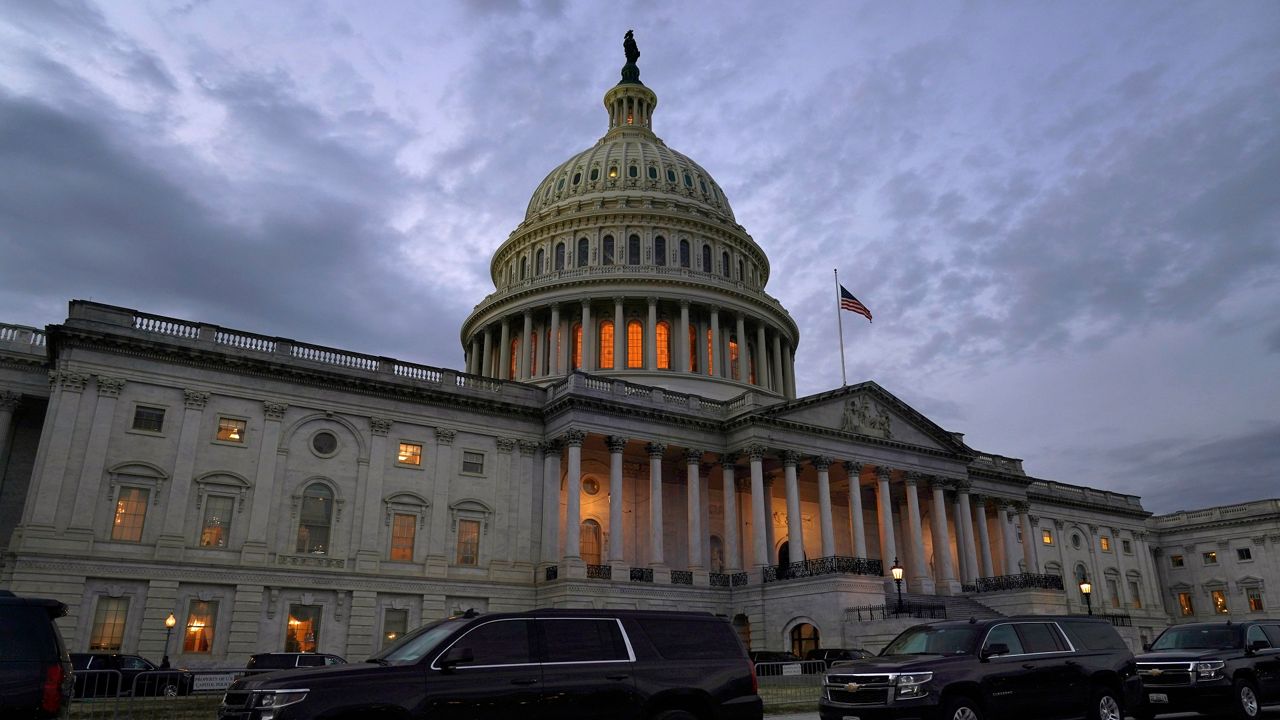A key Senate committee held a hearing on Tuesday which would grant statehood to Washington, D.C., giving the district’s more than 700,000 citizens full representation in Congress.
“This hearing is of historic significance,” D.C.’s nonvoting delegate Eleanor Holmes Norton said Tuesday. “It is only the second Senate hearing on our D.C. statehood bill in the nation’s history.”
The Senate Homeland Security and Governmental Affairs Committee examined the Washington, D.C. Admission Act, or S.51, on Tuesday, which would create the state of Washington, Douglass Commonwealth, named in honor of the prominent abolitionist and civil rights leader Frederick Douglass.
The bill would shrink the federal district to a small, two-square-mile sliver of land, which includes the White House, the U.S. Capitol and the National Mall, and give D.C.’s residents two U.S. Senators and a single voting member in the House of Representatives. The House passed the measure in April.
“Our nation’s capital is home to more than just monuments and museums; it is home to American families who go to work, start businesses, pay their taxes and contribute to America’s economic prowess,” Delaware Sen. Tom Carper, who introduced the bill in the Senate, said at the hearing. “As every Congress passes, we are failing these fellow Americans and coming well short of our founders’ rallying cry of ‘no taxation without representation.’”
Currently, D.C.’s residents are subject to federal taxes — with the slogan “End Taxation Without Representation,” an echo of the slogan that started the American Revolution, emblazoned on the district’s license plates — and have no representative in Congress, though they do have the right to vote in presidential elections.
"The residents I represent pay more taxes per capita than any state and pay more federal taxes right now than 21 states,” Norton said at the hearing.
Speakers at Tuesday’s hearing included D.C. Mayor Muriel Bowser and former Connecticut Senator and Vice Presidential candidate Joe Lieberman.
Lieberman called denying D.C. statehood an affront to taxation without representation and consent of the governed, two founding principles of the United States.
"It is self-evidently unacceptable in America to condition enjoyment of constitutional rights on political party membership,” the former lawmaker said, criticizing the bill’s opponents.
"There is no legal or constitutional barrier to DC statehood,” Bowser said.
The District has a population larger than that of two U.S. states — Vermont and Wyoming — and all of the United States’ territories other than Puerto Rico.
The measure has the staunch backing of the Biden White House, which said in a statement that Washington’s status is “an affront to the democratic values on which our Nation was founded.”
“Washington, D.C. has a robust economy, a rich culture, and a diverse population of Americans from all walks of life who are entitled to full and equal participation in our democracy,” the administration’s statement read.
The measure has 45 co-sponsors in the Senate, the vast majority of the Democratic caucus, including Senate Majority Leader Chuck Schumer, D-N.Y., leading progressive Sens. Bernie Sanders, I-Vt., and Elizabeth Warren, D-Mass., and both of Georgia’s lawmakers, Sens. Jon Ossoff and Raphael Warnock.
Notably, Arizona Sen. Kyrsten Sinema, a moderate Democrat who sits on the Homeland Security and Governmental Affairs Committee, has not yet opined on whether or not she supports the measure.
But the bill faces an uphill battle in the Senate, regardless — it would require 10 Republicans to support the measure to overcome the body’s legislative filibuster threshold.
Republicans have largely come out in opposition to the bill, blasting it as a partisan power grab by Democrats.
Wisconsin Sen. Ron Johnson said Tuesday the measure “seems like a naked power grab,” and Missouri Sen. Josh Hawley argued that the bill is unconstitutional.
“What Congress cannot do is override the Constitution when it becomes convenient for a majority in Congress,” Hawley said.
Ohio Sen. Rob Portman, a Republican, said he believes that retroceding D.C. to neighboring Maryland is the best path forward, which Mayor Bowser vehemently rejected.
Despite the long odds, advocates were undaunted and promised they would continue to fight for D.C. statehood.
“We will not quit until we achieve full democracy and our two senators are seated here with you,” Mayor Bowser pledged.



